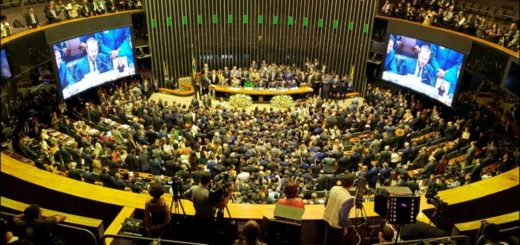German growth halves in first quarter on weak trade
Source: (Reuters) – BERLIN – German growth halved in the first quarter of the year due to weaker exports and less state spending as disputes with the United States over trade and Iran’s nuclear deal clouded the outlook for Europe’s biggest economy.
The weaker-than-expected gross domestic product (GDP) data, released by the Federal Statistics Office on Tuesday, showed the German economy grew by 0.3 percent in the first three months, the slowest rate since the third quarter of 2016.
The first estimate was below the 0.4 percent predicted in a Reuters forecast of analysts and followed an expansion rate of 0.6 percent in the final three months of last year.
While the soft data caused European stocks to slip, it still marked the 15th consecutive quarter of expansion, the longest period of uninterrupted growth since German reunification.
“Is it a pause or a fundamental shift? For us the answer is clear: It’s just a blip,” DekaBank analyst Andreas Scheuerle said. He pointed to continued strong foreign demand and vibrant domestic activity due to record employment and rising wages.
“However, this should not hide the fact that risks to the economic outlook have risen not least due to the neo-protectionist aspirations and sanctions policy of the U.S. government,” Scheuerle added.
A further rise in oil prices also had a negative impact on economic expectations, ZEW researcher Achim Wambach added.
Despite Germany’s weaker-than-expected performance, the European Union’s statistics office on Tuesday confirmed its earlier preliminary flash estimate for the euro zone as a whole which showed growth slowed to 0.4 percent in the first quarter from 0.7 percent in the previous three months.
Separate data from France showed that the euro zone’s second-biggest economy grew more than previously estimated last year, expanding by a calendar-adjusted 2.3 percent. This marked a sharp revision from 2.0 percent reported earlier.
STRONG INVESTMENTS
The German statistics office said growth in the first quarter was driven by domestic demand while trade was a drag.
“Investment rose sharply, with significantly more investment in construction, but also in equipment,” the office said. Household spending rose slightly while state consumption fell.
On the year, the German economy grew by a calendar-adjusted 2.3 percent in the first quarter, the data showed. This was just short of the consensus forecast of 2.4 percent.
The office also confirmed full-year GDP growth of 2.2 percent in 2017 which translated into a calendar-adjusted rate of 2.5 percent. This was the strongest pace since 2011.
The DIHK Chambers of Commerce and Industry blamed the slowdown in the first quarter on a flu epidemic, an unusually high number of strikes and an above-average number of holidays.
“The start of the year is a disappointment, but not yet the beginning of the end of the upswing,” DIHK managing director Martin Wansleben said.
The Economy Ministry, in its monthly report, also pointed to the unusually long time it took to build a coalition after September elections, a delay that led to less state spending in the first quarter.
However, it was still unclear whether uncertainty among companies about U.S. tariffs on steel, aluminium and possibly other goods already had an impact on trade flows, it added.
UPSWING INTACT
The government has also said it expects the economy to bounce back in the second quarter due to full order books and high employment. Berlin forecasts 2.3 percent growth this year.
“The upswing has cooled down a bit, but it’s still intact,” Ifo President Clemens Fuest said. “We expect stronger growth rates in the months ahead.”
“In all, we still see German GDP rising by 2.5 percent this year as a whole and the renewed strength of the euro zone’s largest economy will encourage the ECB to signal this summer that asset purchases will not last into 2019,” she added.
The release of the preliminary GDP data does not include a detailed breakdown but only a qualitative assessment. The office will release more detailed GDP results on 24 May.






Comentarios recientes